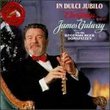| All Artists: Franz [Vienna] Schubert Title: Schubert Complete String Quartets Vol. 6: Quartet No. 15 (1826); Five German Dances with seven trios and a coda, D. 9 Members Wishing: 0 Total Copies: 0 Label: Naxos Original Release Date: 1/1/2005 Re-Release Date: 6/21/2005 Genre: Classical Styles: Chamber Music, Historical Periods, Classical (c.1770-1830) Number of Discs: 1 SwapaCD Credits: 1 UPC: 747313212521 |
Search - Franz [Vienna] Schubert :: Schubert Complete String Quartets Vol. 6: Quartet No. 15 (1826); Five German Dances with seven trios and a coda, D. 9
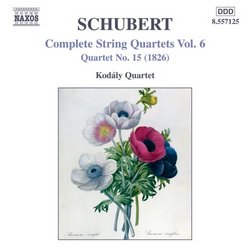 | Franz [Vienna] Schubert Schubert Complete String Quartets Vol. 6: Quartet No. 15 (1826); Five German Dances with seven trios and a coda, D. 9 Genre: Classical
|
Larger Image |
CD DetailsSimilarly Requested CDs
|
CD ReviewsA Fine Budget Version of Schubert's Last String Quartet Jeffrey Lipscomb | Sacramento, CA United States | 06/25/2005 (4 out of 5 stars) "Schubert's 15th and last string quartet is one of his most important works. It was written between the 20th and the 30th of June 1826 (Schubert died in 1828, when he was only 31 years old). This quartet is an incredibly masterful display of emotional depth, extraordinary harmonic progressions, and sheer rhythmic impetus. The first movement opens in a very direct fashion - it lacks the usual formal introduction. There are some ethereal soft echo effects here from the cello, accompanied by tremolos in the upper strings. Schubert knew he was dying at the time he wrote this music, and it is a very moving mixture of defiance, anguish and resignation. The second movement is a songful and serene night piece that is disturbed by two violent outbursts. Again the cello plays a very important part here, introducing the first plaintive motif and repeating the songful theme after each outburst. The scherzo, which is based on a quavering figure that is interspersed with some short spiccato themes, has been likened to a dance of elves. The finale was once described by writer J. A. Westrup as "a mad rondo, violent in rhythm and wild in harmony." Abrupt alternations between major and minor lead to some very unexpected harmonic progressions - this is Schubert at his most creative and audacious. This budget stereo Naxos recording by the Kodaly Quartet concludes its survey of Schubert's string quartets. I feel this is the finest single-disc stereo version, and the inclusion of the lovely German Dances as a filler makes this CD a most attractive purchase. I certainly prefer the warm, mellow playing here by the Kodaly to the brash and rather hard-boiled Sony CD account by the Juilliard Quartet (I absolutely love the latter's Bartok & Schoenberg recordings, but they tend to be too assertive in Schubert). Likewise, I think the Kodaly's account is far better than the Lindsay Quartet's (ASV), which has some dreadfully out of tune playing (I have weeded both the Juilliard and the Lindsay recordings). To my ears, the main stereo competition here is the extremely polished Quartetto Italiano (available in an inexpensive Philips "two-fer" of Schubert's four last quartets). While I prefer the latter, I'm also keeping the Kodaly (the German Dances, while brief, are pretty indispensable). If memory serves, an orchestrated version of the first Dance was used in a highly-effective way with other Schubert works (especially the Piano Trio #1) in Stanley Kubrick's brilliant film "Barry Lyndon." However, this Vol. 6 of the Kodaly Quartet's Schubert is the only one in their series that I will be keeping. That's not to say that the series is in any way unattractive. But Schubert's first seven quartets are fairly early, immature works, and I can't see owning multiple versions of them. And there are simply better versions of the later quartets. All 15 quartets were once available on mono Westminster LPs from the early 1950's (in excellent sound). These were performed by the wonderful Vienna Konzerthaus Quartet (Kamper, Titze, Weiss and Kvarda), all of whose members were players in the Vienna Philharmonic under conductor Wilhelm Furtwangler. This remains my "desert island" version of the complete quartets (they have been issued on CDs in Japan on the MCA label). The great Busch String Quartet (Adolf Busch, Gosta Andreassen, Karl Doktor, and Hermann Busch) recorded the "ne plus ultra" account of #8, a superb #14 (unfortunately, due to 78 rpm constraints, the latter is shorn of all the repeats), and #15. These are available, along with the Fantasie in C (Busch & Serkin) and the Piano Trio #1, on a Pearl CD set. My personal favorites in the last three Schubert quartets: #13. The Vienna Konzerthaus captures like no other ensemble the intensely Brucknerian span of this gorgeous work. #14. In chronological order, my all-time favorites of this stunning masterpiece are the ORIGINAL 1927 Budapest Quartet (Emil Hauser, Joseph Roisman, Istvan Ipolyi, and Harry Son) on a hard to find Novello CD; the 1927/28 Capet Quartet (a reading of extraordinary spiritual purity on Biddulph); the heartbreakingly beautiful 1936 Busch Quartet (Pearl); the c. 1950 Vienna Konzerthaus (a uniquely warm and gemutlich account on Westminster LP and Japanese MCA CD); and the gloriously well-played c.1951 Hollywood Quartet (mine is on a Capitol LP). #15. The Busch and the Vienna Konzerthaus are both supremely eloquent here, but my ultimate allegiance is to the latter's inimitable warmth and lyricism. All of those versions are, of course, in monophonic sound. For a single CD version of #15 in good stereo sound, I feel this effort by the Kodaly Quartet is clearly the one to own. [Update 3-6-08]: The above-mentioned mono recordings of all 15 String Quartets, with the Vienna Konzerthaus Quartet, were recently issued in a 5-disc CD set by Preiser (an Austrian label with generally good transfers). That 5-disc set is currently available on the Internet at Berkshire Record Outlet for $24.95 plus shipping. Jeff Lipscomb" A Beautiful Conclusion to This Series J Scott Morrison | Middlebury VT, USA | 06/25/2005 (5 out of 5 stars) "The Kodály Quartet has been slowly recording all of Schubert's string quartets and with this Volume 6 we come to the end. The CD contains Schubert's last finished quartet, No. 15 in G Major, D. 887, Op. 161, and the disc is filled out by Five German Dances, D. 90. The Kodály Quartet has more or less become the Naxos label's house quartet, having recorded large chunks of the central quartet literature for them. This is good, because not only are they a wonderful quartet, they are non-interventionist without being bland. String quartet playing is hard work and requires much slow, thoughtful study on the part of the players. It is to the Kodály's credit that they have taken a slow and steady course through the Schubert quartets, some of which they surely had never played before; the early apprentice works in particular are almost never played and yet the Kodály played them not only with musicianly respect but with love and admiration. When we get to Schubert's last quartet, though, we have an undisputed masterpiece that every quartet worthy of the name plays. Its opening movement is one of the most marvelous (and harmonically complicated) works he ever composed. It takes fifteen minutes to play and works its magic in subtle ways. For instance, when it comes time for the recapitulation the first theme is changed from minor to major, and the second from major to minor. Had anyone ever thought to do that before? The minor key cello theme that opens the Andante is one of Schubert's patented melodies; it almost tears your heart out with its gentle pathos. In the Scherzo we are in familiar elfin Schubertian territory that evolves into ländlerisch folk dance rhythms in the Trio, gentle, not turbulent. And this prepares us for the high spirits of the Finale, a rowdy tarantella. The Kodály play this quartet with a maximum of relish, a minimum of gratuitous edge. They make this complex quartet what it is really meant to be, a thoroughly comprehensible compendium of 1826 quartet writing, easy on the ear and rewarding for the analytic mind. This is a beautiful performance worthy to stand beside any of the earlier treasured recordings (Busch, Alban Berg, Quartetto Italiano) this marvelous quartet has been afforded. The disc is rounded out by five German Dances written when Schubert was sixteen. They are notable for their rough good humor. No. 4 lasts a mere 50 seconds but is infectious enough to have this listener up and stomping his feet in an enthusiastic approximation of dancing. The Kodály's approach is, fittingly, more rough and ready in these pieces than in the subtleties of the 15th Quartet, evidence that they are really entering into the spirit of the music itself rather than applying a one-size-fits-all approach. Although with a timing of only 59+ minutes, this CD is heartily recommended for its marvelous musicmaking. Scott Morrison" Often expressive and dramatic, at times a little plodding an Discophage | France | 08/13/2006 (3 out of 5 stars) "In the 6th volume of its complete traversal of Schubert's compositions for string quartet on Naxos, the Kodaly Quartet brings together the great quartet opus 161, one of the last works of Schubert's desperately short life and one of his most poignant compositions, and an early rarity, written when he was 16, the 5 German Dances D. 90. The latter is written in a typically "gallant" style, with no great depth but full of charm. But the big nut on this CD is of course the 15th quartet.
In the first movement "Allegro molto moderato", the Kodaly Quartet is quite dramatic, very attentive to the movement diverse moods, from harrowing vehemence to hushed mystery, and nicely retains the dance-like lilt of the second theme; there is a price to pay, however, in the multiplication of tempo transitions, none of them prescribed by Schubert ; one senses musicians interested in immediate dramatic impact rather than architectural coherence. The second movement "Andante un poco moto" is taken by the Kodaly quartet at a very deliberate, not very "motorized" tempo (almost as slow as the Quartetto Italiano in their recording from 1976), making it sound more like an adagio in plaintive tone, almost a funeral march, with accents that evoke not so much cries of revolt or pain as moans; the approach is effective in its own way, but it is not exactly what Schubert wrote. And here again, in the more animated passages, the Kodalys do not hesitate to perceptibly accelerate tempo; Quartetto Italiano was more consistent in that respect. Under the Kodaly's bows, the Scherzo's "Allegro vivace" (3rd movement) is not particularly vivacious, but nonetheless sufficiently light and full of bounce, as befits this musical invention which suggests the bumblebee's flight or the butterfly's flutter (and the elve's dance will do, too). The middle trio however is rather mawkish, and again the Kodalys imperceptibly speed up their tempo in the second part. Their Finale is somewhat disappointing, due to a tempo that is too deliberate to evoke the race to the abyss that others conjure (Gidon Kremer and friends on Sony take as much time to get through the movement - but with the repeat) and, while the ensemble's tone production until then had been not exceptional but unexceptionable, the 1st violin becomes a bit sour in its upper registers. Not an exceptional version then, but at that price one that remains very acceptable. " |

 Track Listings (9) - Disc #1
Track Listings (9) - Disc #1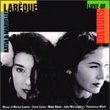
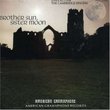
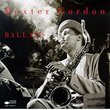

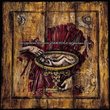



![Across The Universe [Deluxe Edition]](https://nationalbookswap.com/cd//m/51/1251/1241251.jpg)
